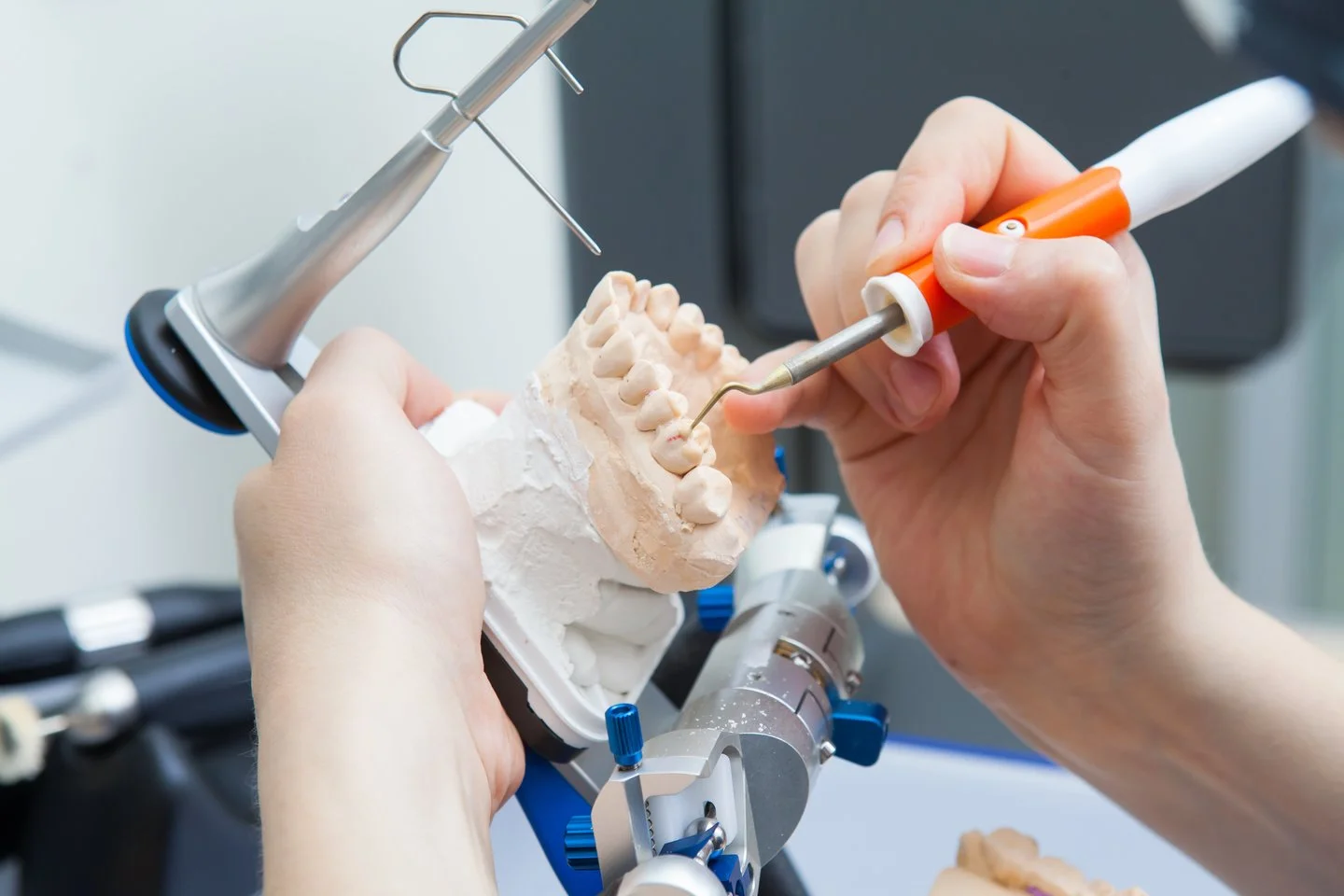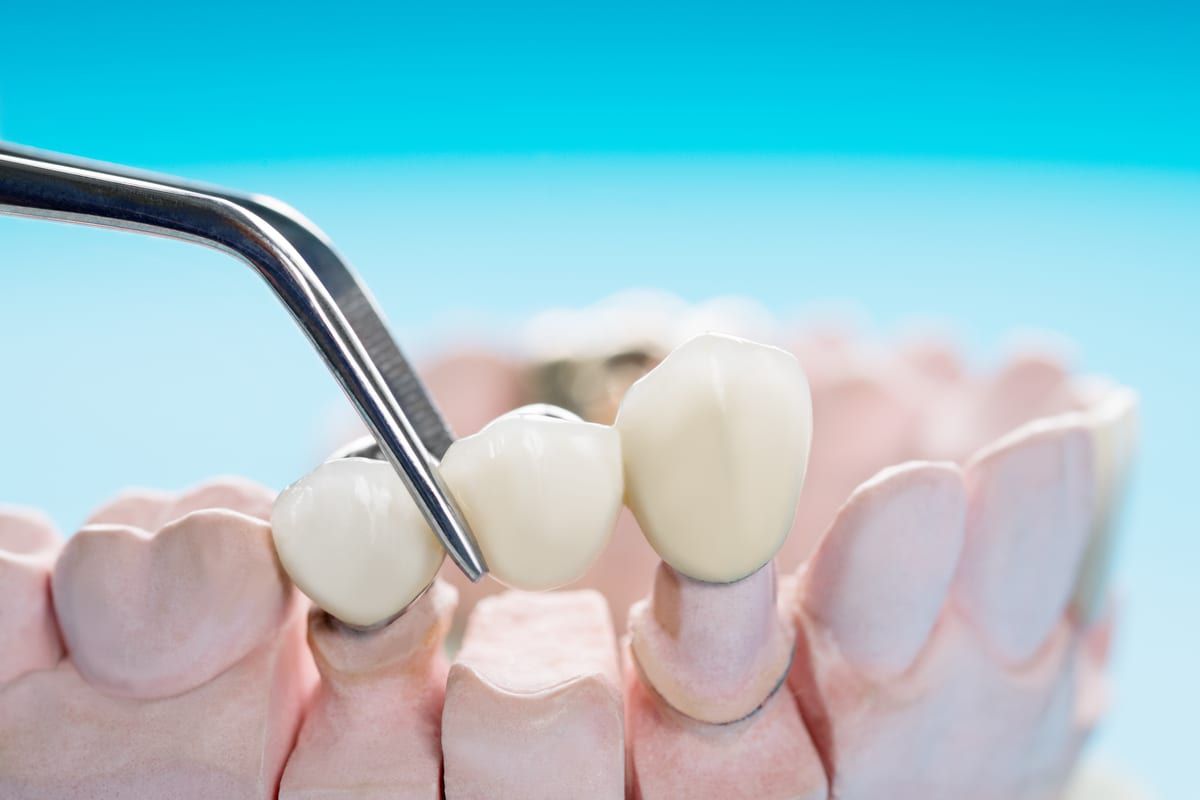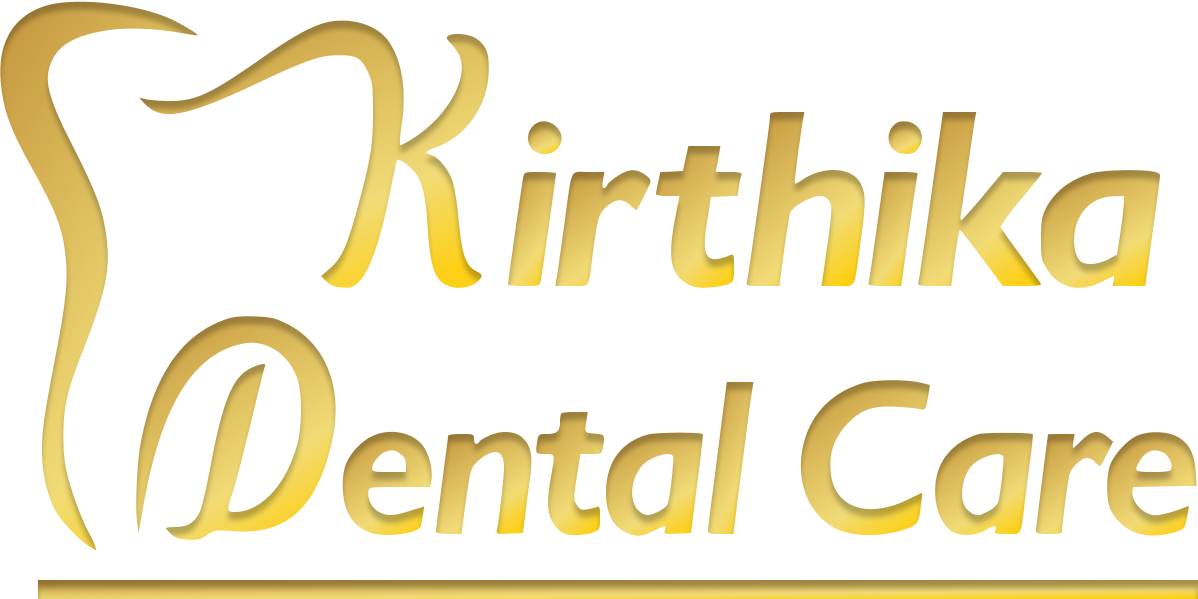
Introduction
Prosthodontics is a specialized branch of dentistry dedicated to making dental prosthetics (artificial teeth) for damaged or missing teeth.
Who needs prosthodontics?
- Missing teeth.
- Severely damaged teeth.
- TMJ pain or dysfunction.
- Mouth or facial pain.
- Cosmetic concerns.
- Obstructive sleep apnea.

What Does a Prosthodontist Do?
Unlike general dentists, prosthodontists specialize in repairing natural teeth and replacing missing teeth. Missing and extracted (removed) teeth are replaced with artificial teeth (dentures), dental implants, caps, or crowns.. Specially trained prosthodontists also work with people with head and neck deformities, replacing missing parts of the jaw and face.
Reasons to See a Prosthodontist
There are various reasons why you would visit a prosthodontist. It could be due to an accident involving the mouth, a congenital (birth-related) condition, or simply cosmetic reasons. Although many traditional dentists can provide these services as well, prosthodontists are extensively trained in state-of-the-art techniques and procedures for treating complex dental conditions.
Here are some common procedures and treatments that fall within the scope of prosthodontics:
- Dentures: Prosthodontists are skilled in creating complete dentures for patients who have lost all their teeth. These dentures are custom-made to fit the patient's mouth and restore their ability to eat, speak, and smile.
- Dental Implants: Prosthodontists are involved in the surgical placement and restoration of dental implants. Implants are artificial tooth roots that are surgically inserted into the jawbone to support dental crowns, bridges, or dentures. Prosthodontists work closely with oral surgeons and periodontists to ensure the proper placement and aesthetic outcome of dental implants.
- Dental Crowns and Bridges: Prosthodontists design and fabricate dental crowns, which are tooth-shaped caps placed over damaged or decayed teeth to restore their strength, shape, and appearance. They also create dental bridges, which are used to replace one or more missing teeth by anchoring them to adjacent teeth or dental implants.
- Veneers: Prosthodontists can apply veneers, which are thin shells made of porcelain or composite resin, to the front surfaces of teeth. Veneers improve the appearance of stained, chipped, or misaligned teeth by creating a natural-looking, uniform smile.
- Temporomandibular Joint (TMJ) Disorders: Prosthodontists diagnose and treat conditions affecting the temporomandibular joint, which connects the jawbone to the skull. They may provide oral appliances or prosthetic solutions to alleviate symptoms such as jaw pain, headaches, and difficulty in jaw movement.
What are the advantages of prosthodontics?
Prosthodontics is a branch of dentistry that focuses on the design, creation, and fitting of artificial teeth, dental implants, and other dental prostheses. The field of prosthodontics offers several advantages for patients who require dental restorations or replacements. Here are some of the advantages of prosthodontics:
- Improved aesthetics: Prosthodontic treatments can greatly enhance the appearance of a patient's smile. Whether it's dental crowns, bridges, dentures, or dental implants, prosthodontic solutions are designed to closely resemble natural teeth, resulting in a more pleasing and natural-looking smile.
- Restored oral function: Missing or damaged teeth can significantly impact a person's ability to chew, speak, and bite properly. Prosthodontic treatments restore oral function by replacing missing teeth or correcting dental abnormalities, enabling patients to eat, speak, and smile with confidence.
- Enhanced comfort: Prosthodontic appliances are customized to fit the individual patient's mouth, ensuring optimal comfort and a secure fit. Dentures, bridges, and implants are made to feel as natural as possible, reducing discomfort and improving overall oral comfort.
- Preservation of oral health: Prosthodontics not only replaces missing teeth but can also help preserve the overall health of the mouth. By filling gaps left by missing teeth, prosthodontic treatments prevent neighboring teeth from shifting, maintain proper jaw alignment, and minimize the risk of dental complications that may arise due to tooth loss.
Copyright © Kirthika Dental Care Is Proudly Owned by Macincode
